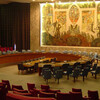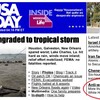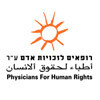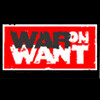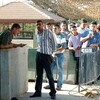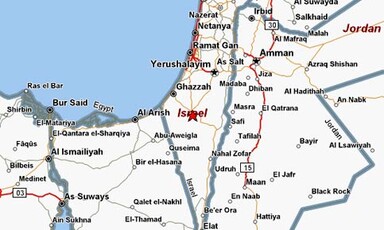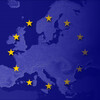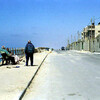
UNCTAD supports Palestinian Shippers Council
23 September 2005
UNCTAD, with funds contributed by the European Commission (EC), is stepping up technical assistance to support the creation of a Palestinian Shippers Council and the extension of computerized customs operations to the Gaza border with Egypt. The two new field projects will have budgets totalling €703,000. The projects add to UNCTAD´s already-extensive efforts to help the Palestinian people revitalize their economy and build the institutional structures of their future state. They address key economic problems and were designed in close consultation with relevant Palestinian Authority (PA) institutions, international development agencies and concerned donors. Read more about UNCTAD supports Palestinian Shippers Council
